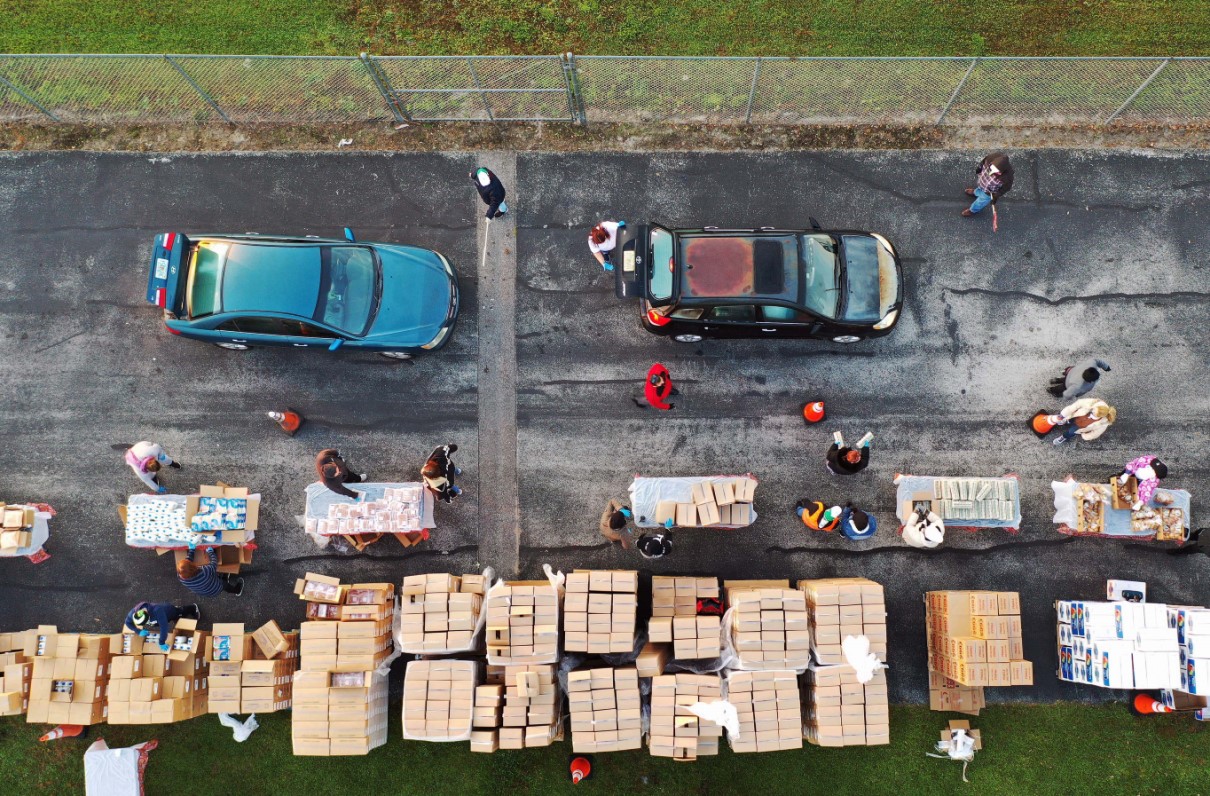If you have commanded a unit with large populations of junior enlisted, you are familiar with the financial challenges and food insecurity faced by some of these servicemembers and their families.
This is not a new problem. It’s even been addressed by Hollywood: If you look back to the 1986 Clint Eastwood movie Heartbreak Ridge, you can see how fictional leaders dealt with this very issue while preparing a young platoon for the invasion of Grenada. Although Hollywood always takes some liberties, advisers for this film captured a glimpse of reality for a young military family.
As a former commanding officer, I faced the same problem deploying young infantrymen to Afghanistan in 2016. This tired old song remains the same, and it’s long overdue for a fix: That’s why MOAA is making this issue part of its Advocacy in Action event, and why we’re asking you to join in our support of the Military Hunger Prevention Act (H.R. 2339), a bipartisan bill addressing this critical concern.
[TAKE ACTION: Ask Your Lawmakers to Support the Military Hunger Prevention Act]
“No servicemember helping protect our country should worry about putting food on their table,” said Lt. Gen. Dana T. Atkins, USAF (Ret), MOAA’s president and CEO. “Food insecurity becomes a primary focus for those servicemembers with families affected, making it difficult to remain focused on their mission at home or deployed. The Military Hunger Prevention Act is essential to supporting our servicemembers and families.”
An Embarrassing Problem
Families of young enlisted members – especially E-3s and E-4s with two or three dependents – truly struggle. The days of the adage: “if the (insert your service) really wanted you to have a family, they would have issued you one” are over, and demographics have changed for our junior enlisted. This enduring compensation problem has been heightened by the COVID-19 pandemic, which has increased spouse unemployment rates and complicated life for all military families.
It’s an embarrassing problem, one that has garnered media attention in recent months:
- CBS News reported on military families relying on food banks in San Diego and Joint Base Lewis-McChord, Wash. (video and transcript at Yahoo! News)
- Texas Public Radio addressed the high rate of food insecurity among military families in that state.
What Is the Real Issue?
Junior enlisted military families with two or three dependents face food insecurity, rely on food banks, and fear the stigma of seeking help. Imagine being an E-4 with a struggling family who is banking on the next promotion board to E-5. These hard-working enlisted families often do not seek help because they don’t want to jeopardize their promotion out of poverty.
And many who do seek help can’t qualify for it. Because the Department of Agriculture counts the Basic Allowance for Housing (BAH) as income, many military families aren’t eligible for assistance under the Supplemental Nutrition Assistance Program (SNAP, formerly known as food stamps). This enduring problem for young military families has been intensified by reduced child care availability that drove up spouse unemployment rates.
The 13th Quadrennial Review of Military Compensation (Volume 1 PDF) found most junior servicemembers promote out of this problem and recommended no change to compensation related to this issue. Unfortunately, this assessment does not consider the physical and mental developmental impacts of food insecurity on military children. The Congressional Budget Office (CBO) estimates 10,200 families of servicemembers would benefit from a Basic Needs Allowance (BNA) to combat food insecurity – H.R. 2339 would provide such an allowance.
Under this legislation, a BNA automatically tied to a calculation of income and the poverty line would provide an estimated $400 a month of much-needed help for military families with food insecurity. This systemic solution will remove the stigma of asking for help for junior enlisted families, with a relatively low cost ($44 million a year).
Click here to ask your lawmakers to support the Military Hunger Prevention Act, and visit MOAA.org/AiA for updates on this issue and other Advocacy in Action topics.
Every Officer Has Two Families
For over 90 years, MOAA has been working to get servicemembers and their families the benefits they deserve.

